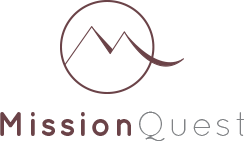You’ve done the research and found several foundations that may be interested in funding your organization. Now it’s time to gather all the documentation and start writing. But before you do, carefully consider these five tips so you don’t waste your limited time and resources.
1. Be Sure You Qualify
Applicants tend to read foundation guidelines very broadly while foundations take a much narrower view. Take the time to review areas of funding thoroughly and carefully. ABC Foundation may support homeless organizations, but the fine print specifies they prefer to give to organizations that help families seeking housing. Take a look at their guidelines and past organizations that have received support to confirm your organization is a good match. If you are not sure, check to see if there is a program officer that can answer your question. Or there may be an email address specifically for grantees to correspond with the foundation.
2. Read The Instructions Carefully
First, read each question of a grant application very carefully. It’s common that one question has two or three components, and all must be addressed thoroughly. And at times a question can be complex. Take the time to think through your answer carefully. After answering all the questions, take a break. Then come back to the application with fresh eyes and reassess if your answers are complete.
It can be easy to “cut and paste” answers from previous grant applications. But keep in mind that every application is different. Be sure to read each new application carefully. When you consider the amount of funding you are requesting, it’s likely worth the time to craft a brand new answer.
All foundations will ask for supporting documentation like the board of directors roster, annual budget, IRS 990, etc. Allow enough time to gather all these documents and be sure they are up to date. When it comes to budgets, provide them in the format requested. Some foundations request the budget for an upcoming year, while others may ask for a past year budget versus actual. If you’ve done it wrong, you may receive a request for correction, but more typically, your application just won’t be considered.
3. Review Your Data
Grant applications often ask for data to support your organization’s programs. This may include the number of people served, demographics of participants, completion rates for programs, etc. Set aside time to review your data and be sure it is both up to date and accurate. Strong data supports your request for funding.
If your organization has not started collecting data, then you may not be ready to apply for funding. You may want to stop the application and instead develop a system to collect the data that will demonstrate the need and success of your program.
4. Allow Plenty of Time
Foundation staff wants to review well-written narrative and carefully collected data. They also want all supporting documents to have been submitted exactly as requested. All of this takes time. Allow a few weeks for each application. This guarantees time to write, edit, gather documentation, and upload everything on time.
Most grant applications are submitted through online portals, and at times, these have glitches. Submit your application a few days in advance to allow for any potential problems.
5. Get Help When Needed
If you are new to grant writing, consider taking a class. If your budget permits, hire someone to assist with both research and writing. MissionQuest has over 19 years of experience supporting non-profits, universities, and government agencies in seeking funding. We’ve secured millions of dollars for our clients that have allowed them to grow and improve their programs. Want to know more, contact us.

